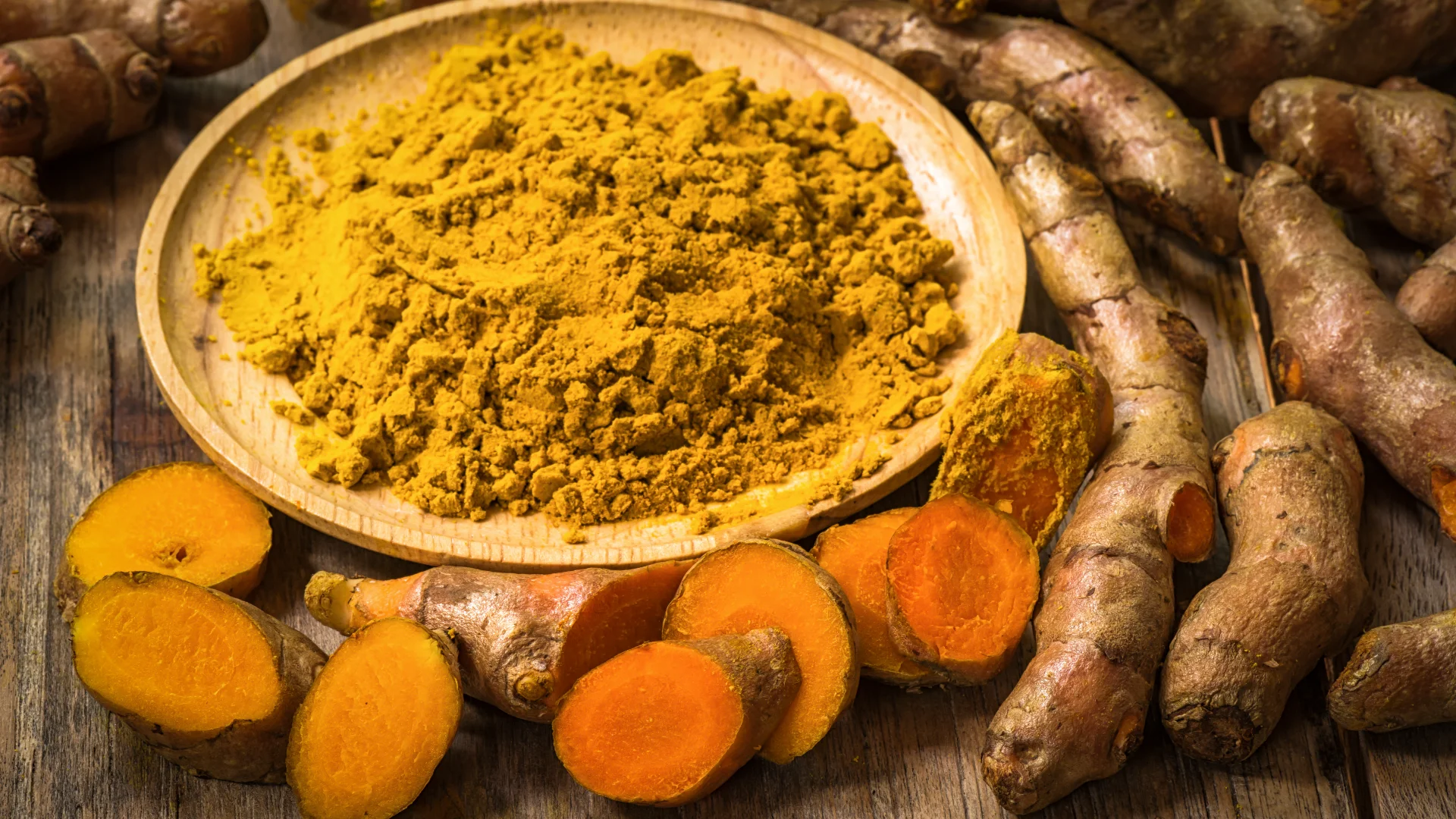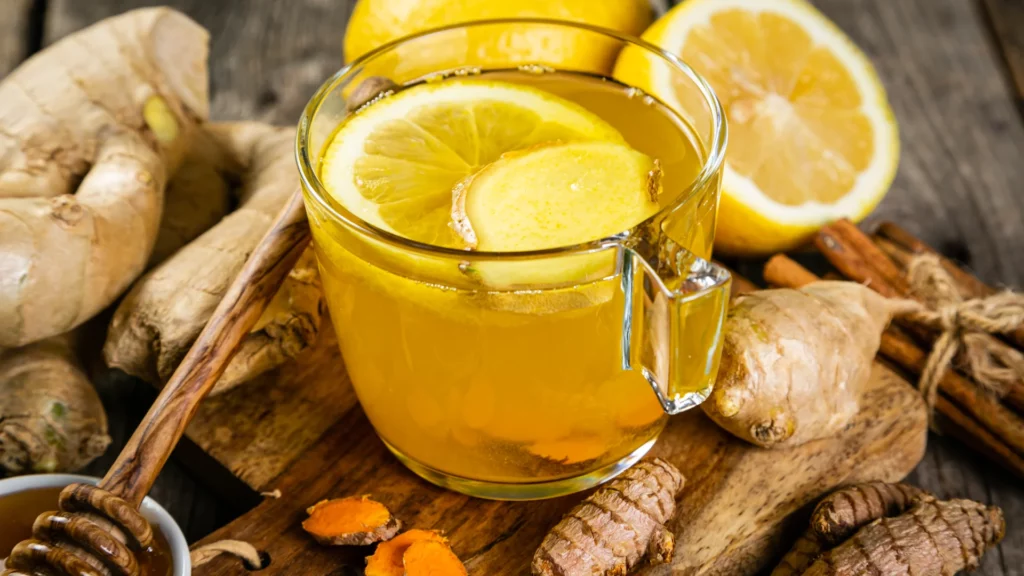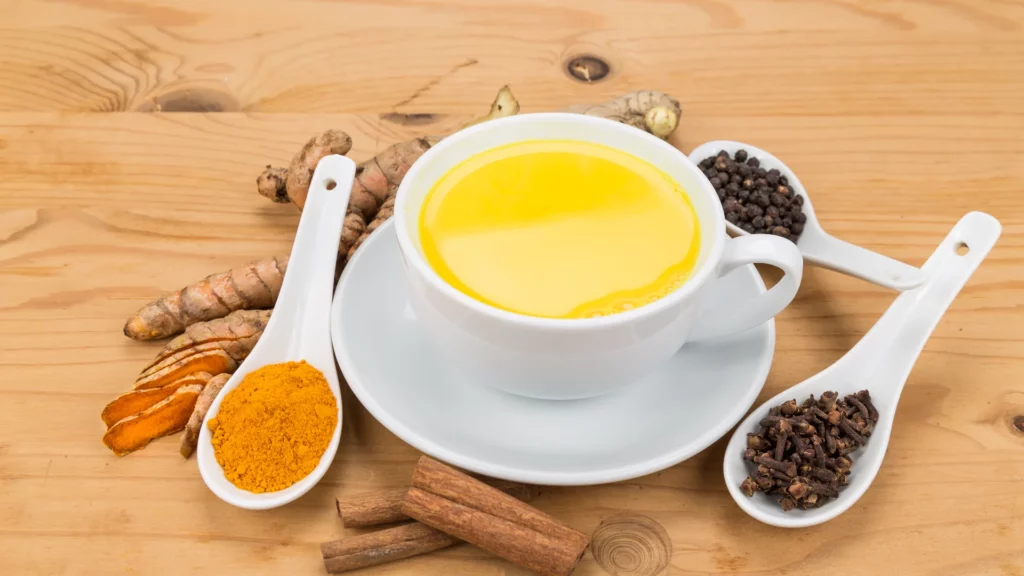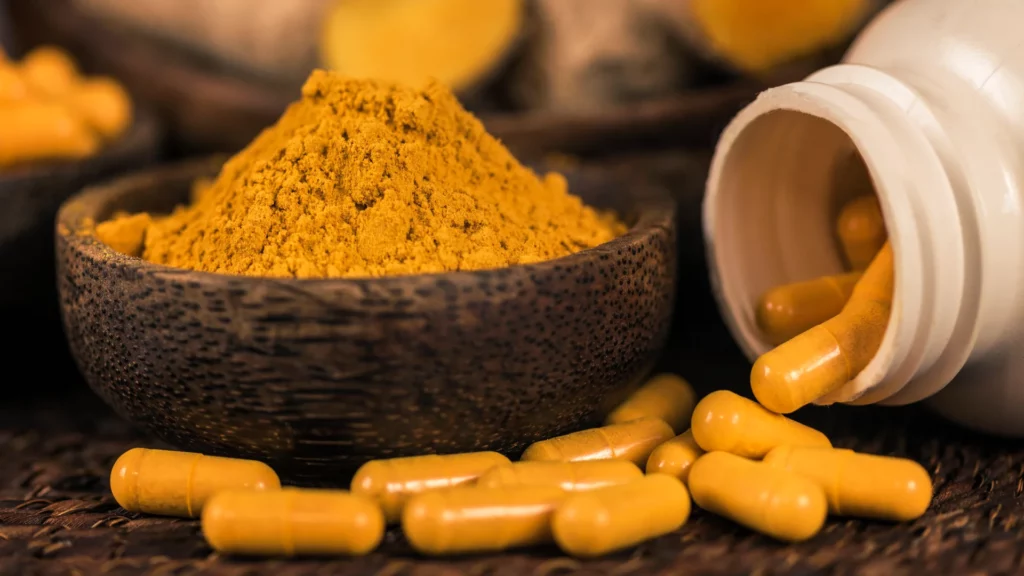
What Are The Health Benefits Of Turmeric?
health benefits of turmeric ( commonly misspelled as benefits of tumeric )
-
Reduces Inflammation
Turmeric has anti-inflammatory properties, which are highly beneficial for people suffering from chronic conditions prone to inflammation. The conditions include arthritis, pancreatitis, and inflammatory bowel syndrome. Ingested in the correct dosage, the anti-inflammatory effects of turmeric may exceed that of prescribed medication such as aspirin and ibuprofen
-
Reduces Risk Of Diabetes
In addition to having anti-inflammatory properties, turmeric has antioxidant abilities. Antioxidants are important in the body as they help neutralize free radicals responsible for causing damage to parts of the body cells which can lead to diseases such as diabetes. Consuming turmeric enhances the body’s blood sugar control and insulin resistance and lowers lipids in the blood. Therefore, the risk of developing diabetes is significantly lowered by turmeric.
-
Alleviates Pain
Chronic conditions such as arthritis are associated with a lot of pain. Supplementing one’s diet with turmeric has been proven to alleviate this pain significantly. However, relying on turmeric alone is not recommended. Instead, one should pair prescribed medication with regular turmeric ingestion to achieve the best results, after consulting the doctor.
-
Aid Cancer Treatment
Inflammation has been associated with tumor growth which causes cancer. The anti-inflammatory properties of turmeric can help stop the growth and spread of tumor cells, thus preventing certain cancer types. This can be accomplished by disrupting tumor cell growth at different stages, destroying cell communication pathways, and killing the cancerous cells. However, more research is required to substantiate these results.
-
Helps In Digestion
Turmeric helps to suppress the production of cholesterol and instead enhances bile production by stimulating the gall bladder. Likewise, it helps reduce inflammation in the intestines, which eases digestion. Its antioxidant properties and fiber composition improve nutrient absorption and muscle movement leading to a smooth digestion process.
-
Improves Memory
One of the common neurological disorders is Alzheimer’s disease which causes the brain to atrophy leading to the death of neurons and causing progressive memory loss. Studies have shown that turmeric promotes the production of neurons which counteract the effects of Alzheimer’s disease. Therefore, regularly consuming turmeric can help improve memory and brain functions.
-
Improves Liver Function
For those suffering from fatty liver disease, turmeric can help reduce the inflammation of the liver. Moreover, turmeric prevents toxins such as those ingested from alcohol and drug use from forming harmful substances that can easily damage the liver. However, turmeric does not protect the body from excessive drinking and drug use. These habits should be avoided.
-
May Improve Depression Symptoms
Depression can be linked to inflammatory activities and oxidative stress. Moreover, chronic stress has been associated with heightened levels of depression. Comprising both anti-inflammatory and antioxidant properties, turmeric can help reduce inflammation and prevent oxidation, thus naturally reducing depression symptoms brought about by these activities. Moreover, turmeric modulates dopamine and serotonin levels in the brain, thus offering complementary treatment options for depression.
When Should I Take Turmeric?
The time of day to take turmeric to receive its health benefits is a matter of personal preference. On normal days, you can decide to take it in the morning and before getting into bed. During bouts of inflammation, you can adjust your dosage of turmeric and ingest it at fixed time intervals during the day to reduce the inflammation flare-up.
How Often Should I Have Turmeric?
Provided one has no underlying medical issues; it is generally considered safe to consume turmeric daily. The recommended dosage is 500 milligrams, taken two times a day. To accurately track your turmeric intake, you can do so in the form of capsules. To receive the health benefits of turmeric, consistent use of the herb is key. However, for pregnant women, intake of turmeric supplements is not advised. Instead, they should use natural turmeric. The same goes for people suffering from chronic and other types of illnesses. Before taking any turmeric supplements, they should consult their doctor to receive proper medical advice.
How To Consume Turmeric
black pepper is only thing that allows us to absorb it…. Turmeric can be consumed in a variety of ways.
-
Turmeric Capsules
Taking Turmeric in supplement form is 1 option should you not have the ability to combine fresh Turmeric in your everyday food or beverages. Turmeric Capsules.
-
Turmeric Tea
Not only a nice beverage to sip away at, there are so many benefits turmeric tea has to offer. And the added health benefits of turmeric and ginger combined kill 2 birds with one stone. Don’t be shy to try a nice Turmeric Tea in the morning or afternoons as preferred.
Turmeric Tea Recipe
250ml Hot Water
1 Tsp Turmeric Ground
1 pinch Black Pepper
1 slice Lemon
1 slice Ginger
Honey ( Optional to taste )
Method: Add all ingredents ( except water ) to a cup. Boil Water ( best at 80°C ) Than pour into cup. Allow to infuse for maximum flavour. Enjoy!

-
Turmeric Milk
Also known as Golden Milk is a very easy to make and tastes delicious. If you have access to fresh turmeric than i suggest making a paste with the turmeric first and use this instead of the dried ground turmeric.
Golden Milk Recipe
250ml Coconut Milk
1 Tbs Ghee
1 Tsp Turmeric Ground
1 pinch Black Pepper Ground
1 Pinch All Spice Ground
Maple Syrup ( Optional )
Cinnamon stick to garnish
Method: Heat milk ( best at 80°C ). Add all ingredents to a bowl and whisk together. Serve with Cinamon and drink immediately!

-
Turmeric in Curries
Turmeric is a staple in most households and is often included in spice blends such as curry powder.

-
Add Turmeric To Smoothies
Turmeric Smoothie Recipe
250ml Coconut Milk
100g Dice Frozen Pineapple
100g Diced Fresh Banana
1 tsp Turmeric Ground
1/2 tsp Black Pepper
1/2 tsp Fresh Ginger
Juice of 1/2 LemonMethod: Add all ingredients into a blender and puree until smooth. Serve in a chilled glass.

-
Add Turmeric To Soups
Spiced Pumpkin Soup
250ml Coconut Cream
250ml Vegetable Stock
500g Dice Pumpkin
100g Diced Onion
100g Diced Carrot
100g Diced Celery
100g Diced Leek
1 tsp Turmeric Paste
1/2 tsp Black Pepper
1/2 tsp Fresh Ginger
Sprig of Coriander To GarnishMethod: Roast the pumpkin on 180°C for approx 30mins or until cooked. In a pot, saute onion, carrot, leek and celery. Add turmeric, ginger, salt and pepper than cook out for 1 minute. Add roasted pumpkin, stock and cream than bring to boil. Turn down to a simmer and cook for a further 20minutes. Turn off the heat and puree. Serve in a bowl with coriander and a swirl of coconut cream.

-
Add Turmeric To Dressings
Turmeric Dressing
100ml Extra Virgin Olive Oil
100ml Apple Cider Vinegar
1 tsp Fresh Turmeric Paste
1 tsp Fresh Ginger Paste
1 tsp Fresh Garlic Paste
1/2 tsp Black Pepper
1/2 tsp Sea Salt
Coriander ( Optional but preferred )Method: Add all ingredients into a blender and puree until smooth. Serve over your favourite salad.

-
Add Turmeric To Pastries

What are the serious side effects of turmeric?
Ingestion of turmeric is generally considered safe. However, some people when taking increased amounts of turmeric may experience mild side effects such as diarrhea, nausea, dizziness, and stomach upset. The more serious side effects caused by turmeric include:
-
Kidney Stones Formation
When large amounts of turmeric are ingested, the risk of the formation of kidney stones is increased. This is attributed to the low doses of oxalate contained in turmeric, estimated at 2%.
-
Excessive Bleeding
Turmeric acts as a natural blood thinner. Therefore, people suffering from bleeding disorders are dissuaded from excessive consumption of turmeric, as it can lead to excessive bleeding.
-
Acid Reflux
Although turmeric is known to alleviate stomach upset, excessive consumption can aggravate stomach upset; thus, acid reflux can occur.
-
Cancer And Neurological Damage
In cases where turmeric is mixed in with other harmful ingredients, for example, the food colorant metanil yellow, it can cause cancer and neurological damage when consumed in large amounts.
Who Should Not Take Turmeric?
There are some amazing turmeric benefits for men and women, though some people should err on the side of caution due to side effects that may have a negative result.
-
Pregnant Women
Turmeric is known to cause contractions; therefore, pregnant women should avoid ingesting excessive amounts of turmeric during pregnancy.
-
Blood Disorder Sufferers
Due to the blood thinning effects of turmeric, people prone to suffering blood disorders should avoid using this herb.
-
Patients With Surgery Scheduled
To avoid excessive bleeding during surgery, people set to undergo surgery should forego using turmeric due to its blood thinning tendencies.
-
People On Medication
Turmeric reduces the effects of certain medications such as Tylenol, ibuprofen, and aspirin. It is thus recommended to seek your doctor’s opinion when on any medication on whether to take turmeric supplements.
Final Thoughts On Turmeric
Turmeric is a highly advantageous spice with health benefits ranging from reduced inflammation, improving digestion, and aiding cancer treatment to alleviate symptoms of depression. These benefits make turmeric a valuable ingredient in a person’s diet. To acquire the health benefits of turmeric, it is recommended to ingest the herb twice daily, which can be done in various ways, such as through soups, tea, and capsules. However, further research is needed to substantiate these health benefits. Moreover, when ingesting turmeric, one should be wary of the side effects associated with its use. Remember to always seek your doctor’s opinion before taking any herbal supplement. Furthermore, your doctor should have an accurate description of your medical history and treatment to make an informed decision.





